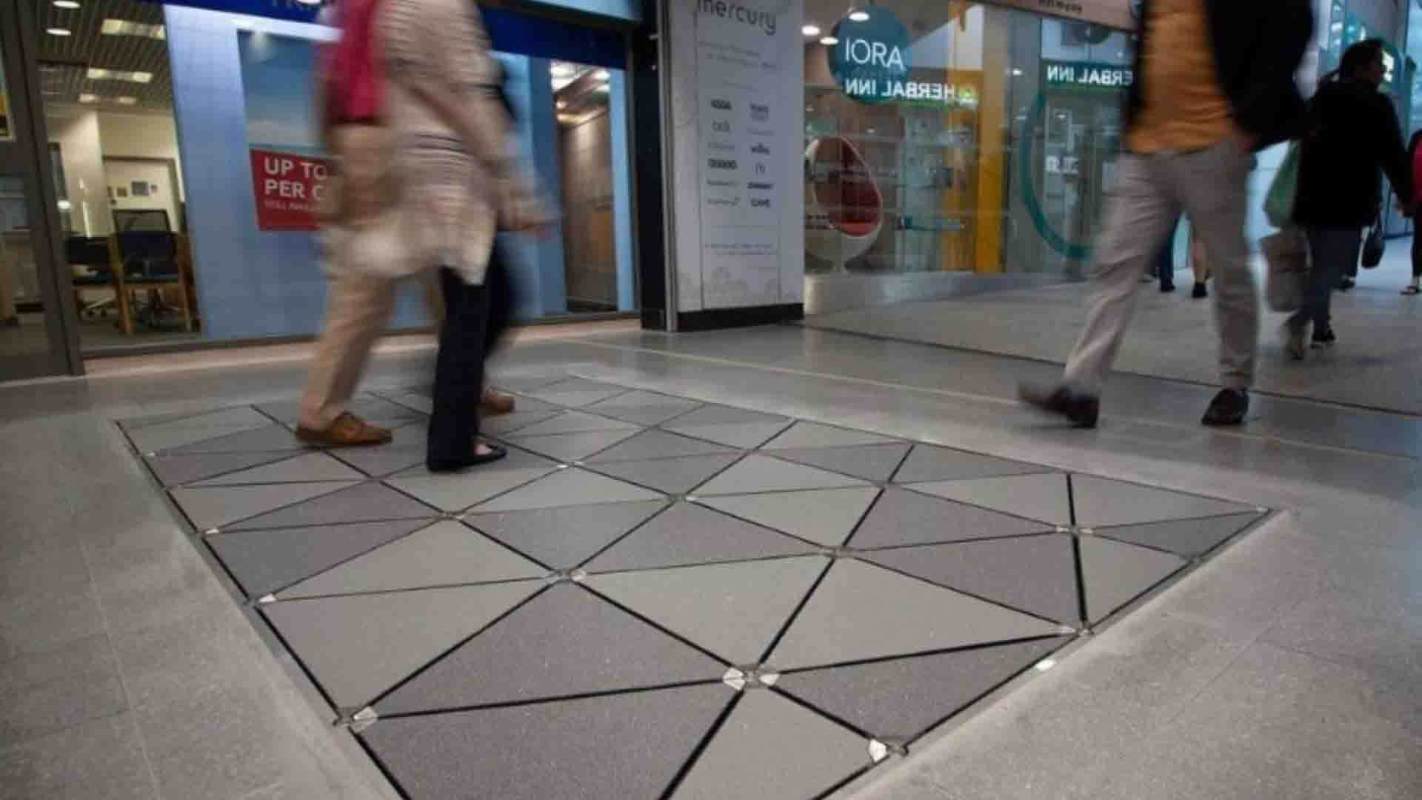A U.K. tech company called Pavegen has invented a way to generate renewable energy from people's footsteps.
Stepping onto a Pavegen tile just one time releases 3-5 joules of electric charge, which is enough to power a light bulb for a few seconds.
These tiles use electromagnetic induction, which is when certain materials release an electric charge when they are compressed. Copper coils and magnets then help to create a charge through induction.
It's one example of how kinetic energy can be harnessed to produce alternative clean electricity, on top of other renewable sources like hydro, wind, solar, and nuclear.
The company says that Pavegen tiles could be a more practical solution for generating energy than wind or solar power, because there is tons of space available in cities to lay the tiles and millions of people to walk on them.
Pavegen tiles can be placed wherever there is floor space, be that indoors or on a city street.
The floor tiles are also not weather- or daylight-dependent, and they can guarantee a consistent source of foot traffic in busy urban areas, like airports, bus stops, schools, clothing stores, or venues.
The company has fused its groundbreaking tech with data collection, which it uses to help incentivize and reward the walkers who have generated electricity.
In a store, for example, customers might earn a digital currency for every step, which they can use to make purchases or donate to a charity.
Sensors can also collect valuable figures about foot traffic and peak walking times.
Pavegen tiles could even be used to help power cities' LED lighting. The company estimates that on Oxford Street in London, which sees anywhere between 138,000 and 500,000 visitors a day, pedestrians could generate around 3,200 watt-hours — enough to help power applications such as LED street furniture lights through the night and public mobile phone charging stations through the day.
This would help with cities' attempts to transition into smart cities and reduce pollution. At the moment, urban areas are responsible for 70% of planet-warming gas pollution around the world.
Pavegen has already installed tiles in 37 countries and has worked on more than 270 projects worldwide.
Both Lagos, Nigeria, and Rio de Janeiro have combined these tiles and solar panels and placed them on some of their soccer fields. With solar and kinetic technology applied, when the players run on the pitch, the combined electricity produced helps to light the pitch.
Meanwhile in London, the tiles power the world's first-ever smart street, where walkers' footsteps power decorative street lighting and Bluetooth transmitters that trigger speakers that play bird sounds.
Join our free newsletter for cool news and cool tips that make it easy to help yourself while helping the planet.









